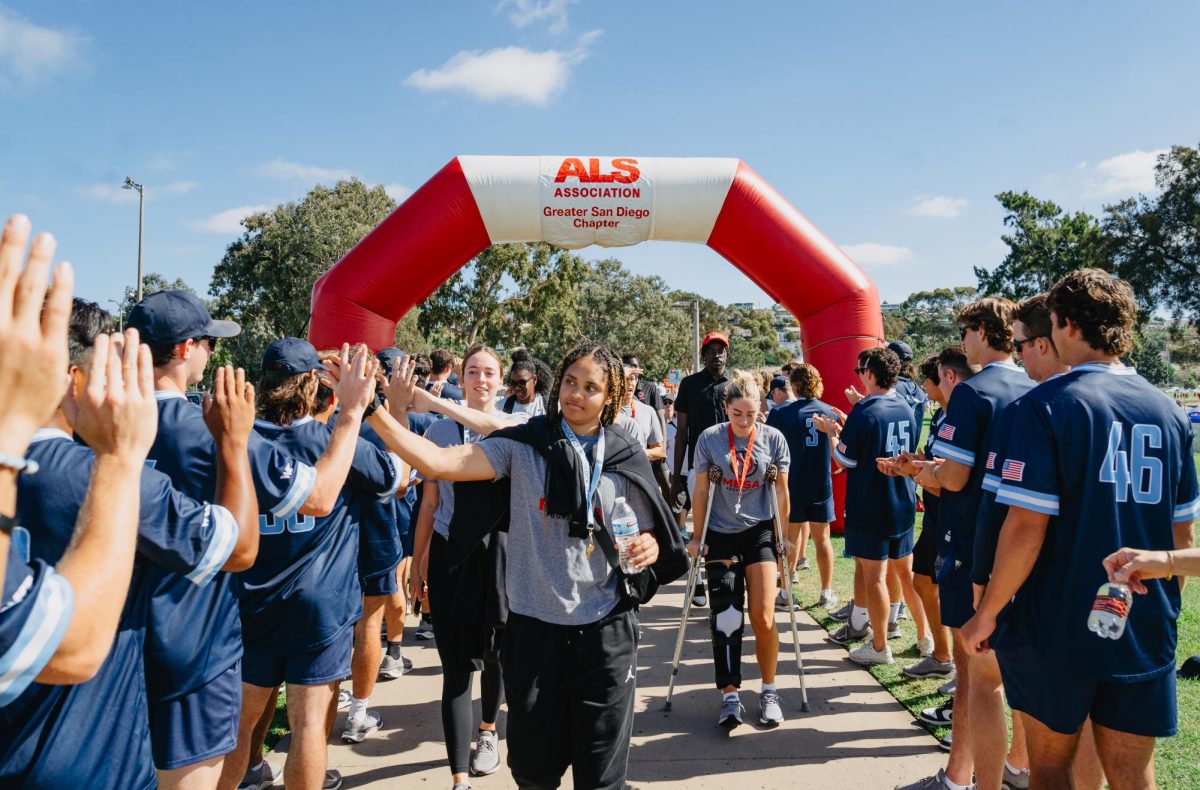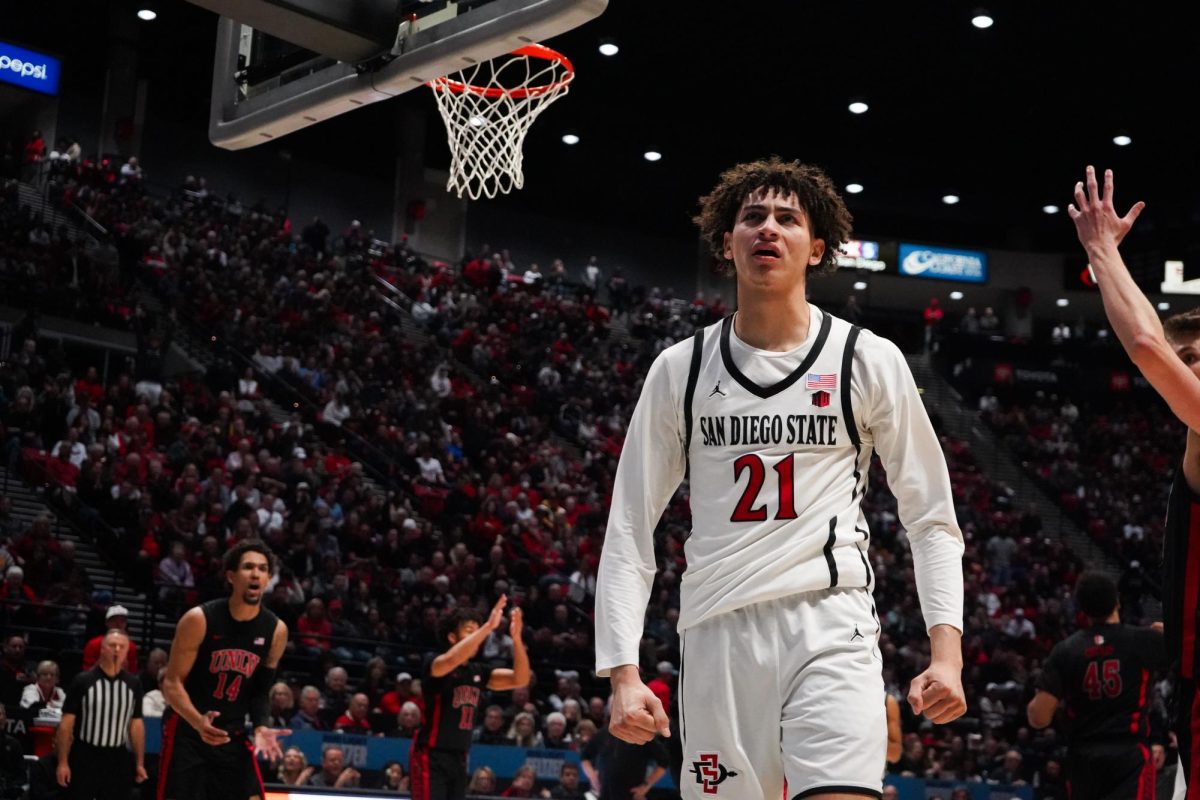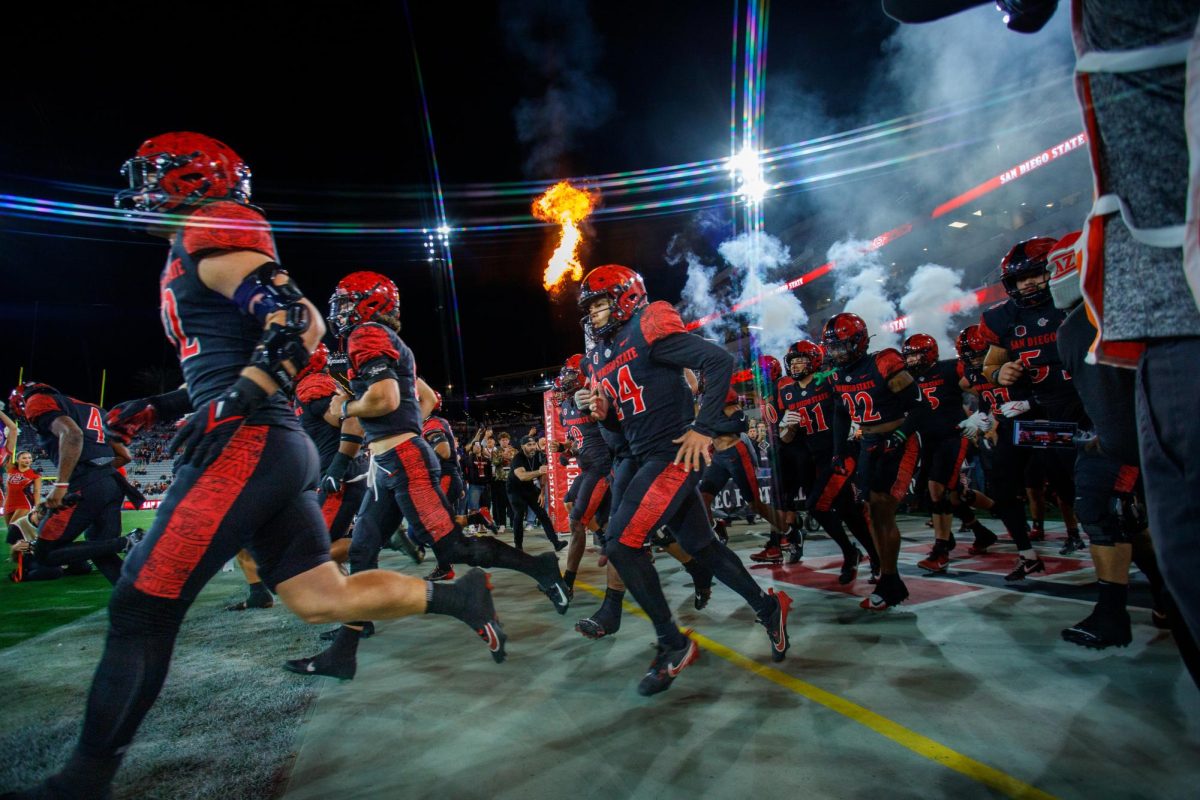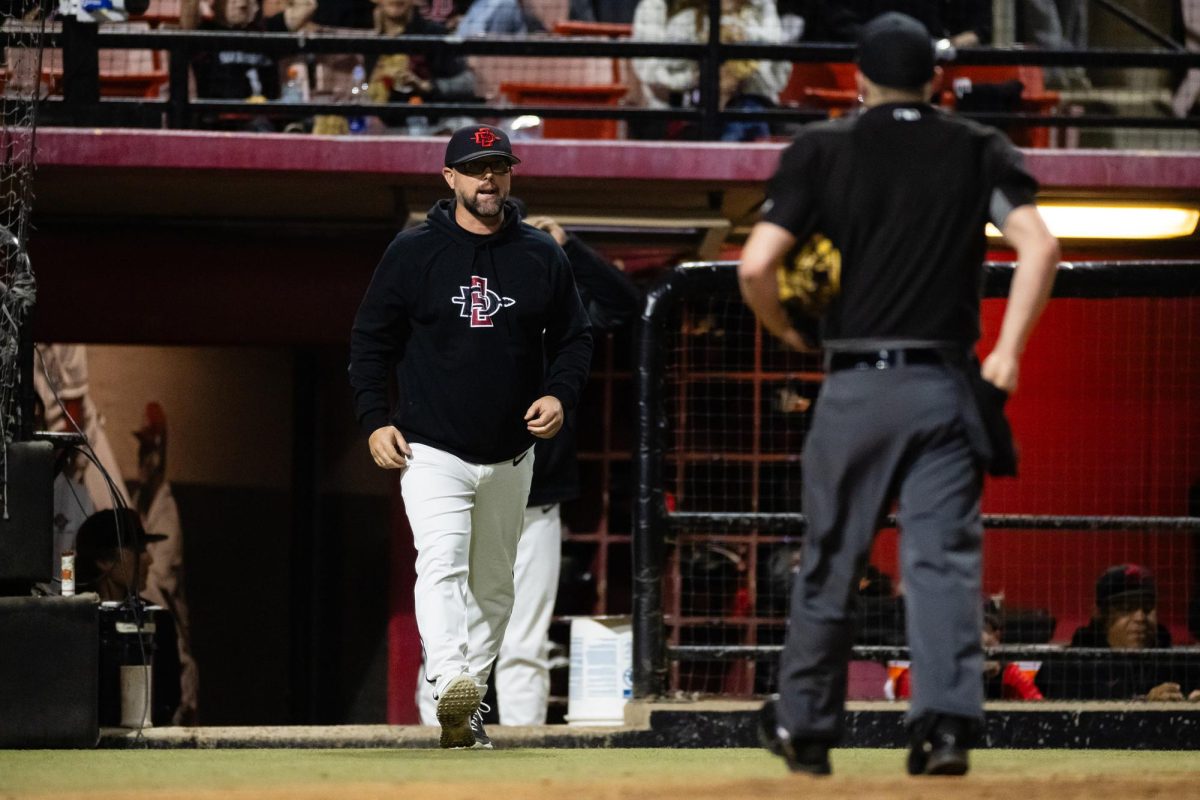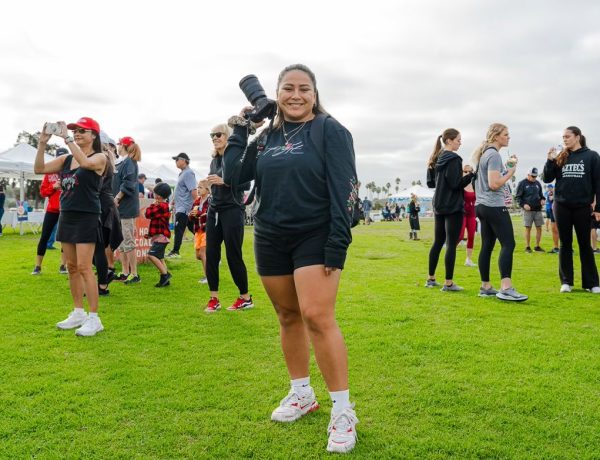The Greater San Diego ALS Association’s goal of raising $500,000 was exceeded this past Sunday, Oct. 22.
One hundred and ten teams composed of 2,000+ people gathered at De Anza Cove Park in Mission Bay for a walk to defeat ALS. This walk is an annual event that brings together a community of people fundraising to find treatments and ultimately a cure.
Amyotrophic Lateral Sclerosis (ALS), also known as Lou Gehrig’s disease, is a progressive neurodegenerative condition that affects nerve cells in the brain and spinal cord.
According to the ALS Association website, motor neurons reach from the brain to the spinal cord and from the spinal cord to the muscles throughout the body. When the motor neurons die, the ability of the brain to initiate and control muscle movement is lost.
When voluntary muscle action is progressively affected, people may lose the ability to speak, eat, move and breathe.
Of the 110 teams that participated in the walk, was Al Schaffer’s team, which consisted of MESA Foundation’s men’s and women’s basketball players. Shaffer is a volunteer assistant coach for Aztecs men’s basketball, and his team raised nearly $10,000.
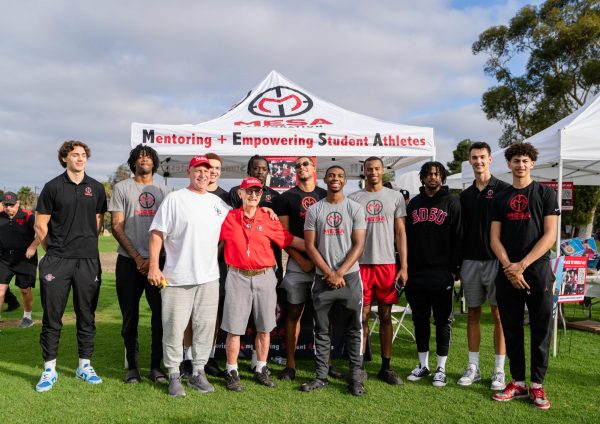
This cause is near and dear to San Diego State University because Aztecs assistant coach Mark Fisher was diagnosed with ALS in 2011. Just this past season, Fisher made history by being the first person ever to coach the Final Four living with ALS.
Merely a few weeks ago, Gov. Gavin Newsom, signed two pivotal pieces of legislation to help identify and optimize new treatments and cures for ALS. This includes legislation AB1369, which expands telehealth access for those living with ALS and other terminal illnesses to consult with physicians who are licensed and located in another state.
The other is legislation SB 496, which expands insurance coverage for biomarker testing, including Medicaid beneficiaries.
California State Assembly member Chris Ward was at the ALS walk, and shared his thoughts on the cause as well as MESA Foundation’s athletes being a part of it.
“More than 1,000 people in our community live with ALS and are really challenged with the fatal disease,” Ward said. “When they need more caregiving at home, we are here to support them — both with the philanthropy that comes in, and with the work that we are doing at the state legislature to support the caregivers and health care workers to defeat this disease.”
“We are so grateful for all things that our Aztecs do to be able to link things in the greater San Diego community. We are intertwined, so their support here for this cause and other causes they contribute to annually makes a major difference in the goals we are trying to reach.”
This year’s ALS walk was the second for the MESA Foundation. MESA’s NIL program connects student-athletes with a variety of nonprofit organizations in the San Diego community. Former Aztecs head coach Steve Fisher, also father of Mark Fisher, shared his thoughts about the program.
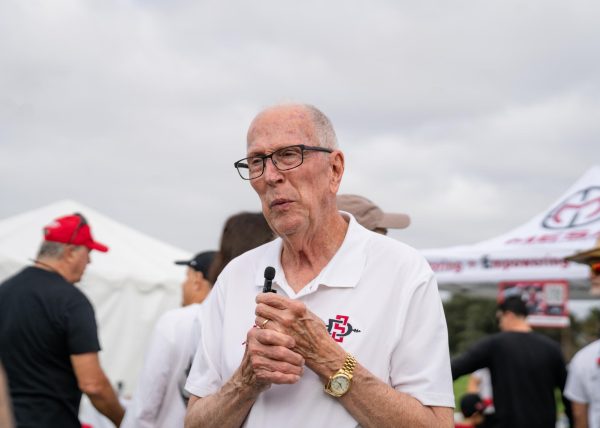
“When I coached, all our players were participants in the walk. Now, with the advance of NIL and the MESA Foundation, they have instituted a great way where our players can not only benefit from name, image and likeness but also understand the importance and value of giving back,” Fisher said. “This is good for them to be here to witness this, be a part of it and know they have a gift and they are fortunate to be where they are. Others look up to them a great deal.”
Steve Becvar, vice president of sports and entertainment for the Greater San Diego ALS Association, discussed how they could not have a better leader than Steve Fisher.
“We are all in it to win it for Mark (Fisher). We are all here to win it for the ALS community. Brian Dutcher, his staff, his players, San Diego State Athletics, the women’s basketball team… we are so grateful for the support they provide,” Becvar said.
Becvar also mentioned that the run the men’s team had from last season’s NCAA championships provided another level of support that they couldn’t have visualized.
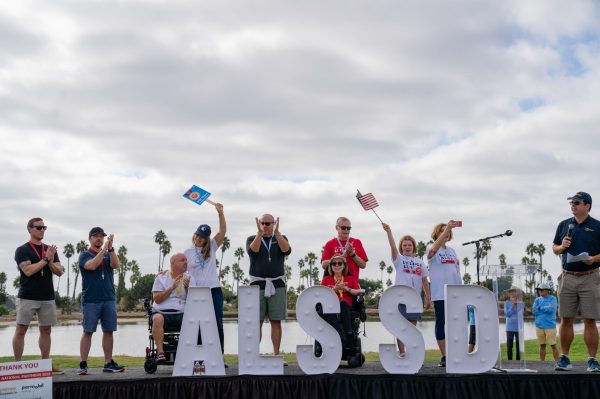
“It was amazing, not only for the San Diego ALS community but for the ALS community nationally as well,” Becvar said.
The platform that MESA Foundation provides through connecting their athletes with different organizations is unlike any other NIL program.
The interpersonal relationships they have built within the community, as well as the visibility they bring to important causes, has shown their impact being effective on a greater scale.
For more information about the ALS Association, visit als.org. For more information on the MESA Foundation, visit mesafoundation.org.



